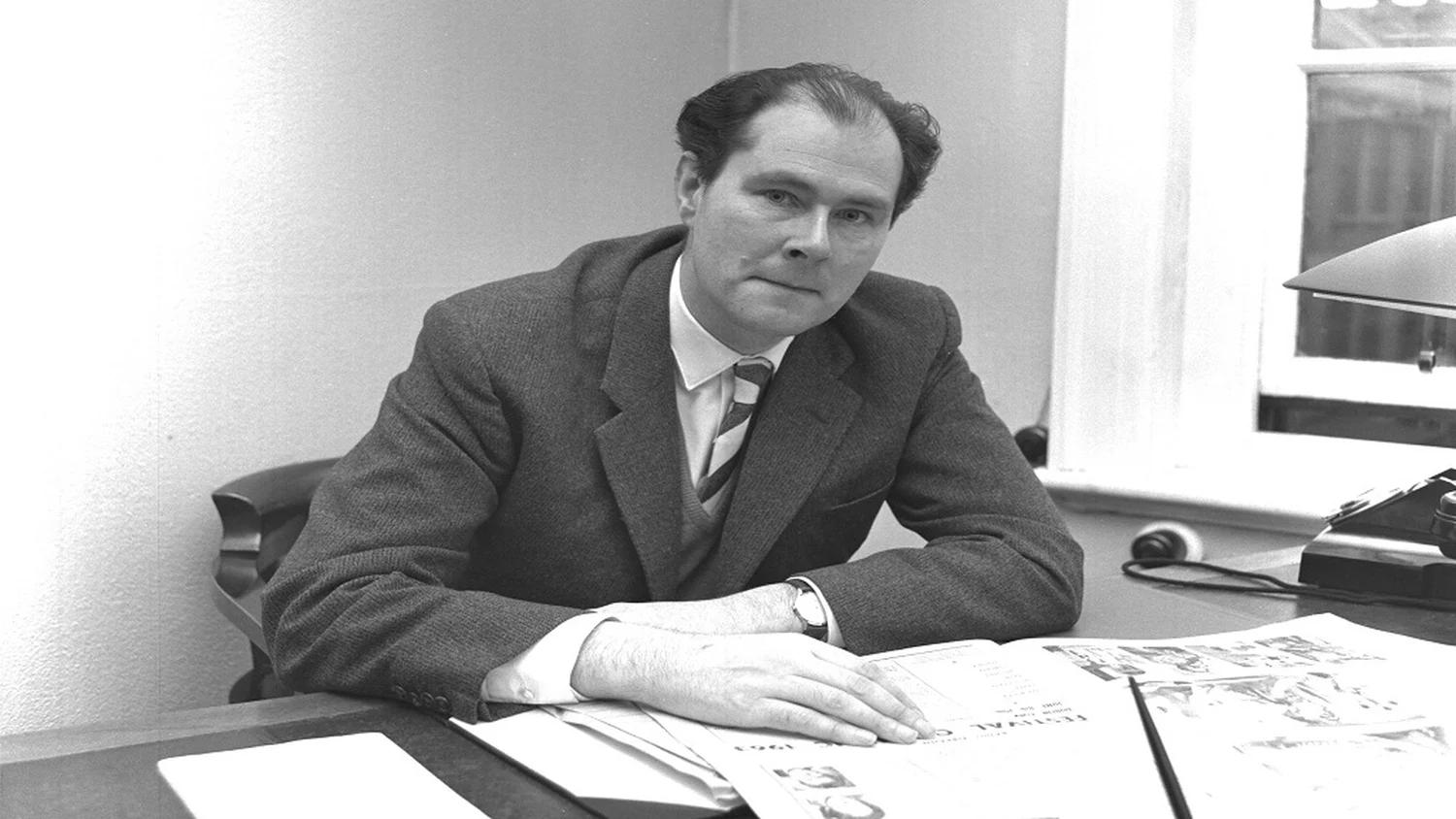Centenary of Gerard Victory's Birth
Today marks 100 years since the birth of Irish composer, Gerard Victory (24 December 1921 – 14 March 1995). The CMC archive holds over 200 of his scores and recordings. In honour of his legacy and contribution to contemporary music in Ireland, we want to highlight a few works from his extensive collection.
Victory enjoyed a varied career path as a civil servant and then as a music producer, culminating in the role of director of music for RTÉ from 1967 until 1982. Victory served as president of UNESCO's International Rostrum of Composers (1981–3) and was a member of Aosdána, Ireland's state-supported academy of creative artists, from its inception in 1981. He married Geraldine Herity in April 1948, and they raised five children.
[Source: Dictionary of Irish Biography]
In 1970, Gerard Victory composed Jonathan Swift for symphony orchestra. It was premiered on 24 June 1972 at St Patrick's Cathedral, Dublin, as part of the Dublin Festival of Twentieth Century Music. Performed by the RTÉ Symphony Orchestra, conductor Albert Rosen.
Victory describes why satirist and poet, Jonathan Swift, influenced his music -
I have always been fascinated by the quite extraordinary and enigmatic personality of Jonathan Swift. His genius 'to madness near allied' dominated the literary and political world of the early eighteenth century and belongs in equal importance to Ireland (to country of his birth and later years) and to Britain. This work has an independent symphonic structure but also illustrates the sequence of Swift's life.
Victory's work encapsulates the complex and turbulent life of one of Ireland's most celebrated authors -
The music falls into two movements. The opening motto, featured on bass clarinet and horns sums up the tragic nature of Swift's personality and echoes in its rhythm the words of his own grim epitaph 'Perish the day on which I was born' which is quoted in Yeats play The Words upon the Windowpane. The passionate section which follows describes his anguish in later years and the shadow of insanity which always haunted him.
Three Pieces for the Irish Harp is a work composed by Victory for solo harp. Two of these short pieces for Irish Harp were composed in 1966, the other, 'Scenario' was composed in 1978, at the invitation of the editor of 'The Irish Harp Book', Sheila Larchet Cuthbert.
The work was commissioned by Cáirde na Cruite, an organisation that promotes the revival and development of interest in the Irish harp. There are certain technical challenges in writing music of a contemporary texture for Irish harp. Unlike the pedal system of the large concert harp as found in the symphony orchestra, the Irish harp is set with a fixed tuning at the beginning of each piece and this can be changed in the course of the music by means of blades which lower or raise pitch by a semitone.
These pieces are written for the traditional method of largely having the same tuning throughout the octaves and any changes of blades to introduce chromatic notes are limited.
In May 2018, CMC with support from Department of the Arts, Heritage, Regional, Rural and Gaeltacht Affairs/Creative Ireland’s Cultural Digitisation Scheme undertook a four-month specialist project with a view to digitising a portion of CMC Archive.
The Contemporary Music Centre began digitising its sheet music collection in 2008. Since the launch of CMC’s new website in 2016, there has been a greater demand for access to digital resources. Read more about the 2018 Digitisation Scheme here.
Some of Gerard Victory's scores were digitised as part of this project, including his first full-length opera, Chatterton (1971) which was broadcast on French radio. Victory wrote eight operas, of which the best known are Chatterton, An Evening for Three and The Rendezvous. The following sample pages are from the digitised score for Chatterton;
Chatterton premiered in France in 1971 on the Office de Radiodiffusion-Télévision Française. The ORTF was the national agency charged, between 1964 and 1975, with providing public radio and television in France.
In 1984 Victory composed Songs from Lyonnesse for mixed choir and piano in 8 movements - Lyonnesse; Birds at Winter Nightfall; Heredity; Horses Aboard; Nature's Questioning; During Wind and Rain; The End of Dreams; Afterwards. Text by Thomas Hardy.
When I Set Out for Lyonnesse
by Thomas Hardy (1914)
When I set out for Lyonnesse,
A hundred miles away,
The rime was on the spray,
And starlight lit my lonesomeness
When I set out for Lyonnesse
A hundred miles away.
What would bechance at Lyonnesse
While I should sojourn there
No prophet durst declare,
Nor did the wisest wizard guess
What would bechance at Lyonnesse
While I should sojourn there.
When I came back from Lyonnesse
With magic in my eyes,
All marked with mute surmise
My radiance rare and fathomless,
When I came back from Lyonnesse
With magic in my eyes!
From Gerard Victory's programme notes for the work -
Lyonnesse was the legendary Arthurian land which in Thomas Hardy's early poetry symbolised a land of fancy. Traditionally presumed to lie in Cornwall, it was significant perhaps that it was in Cornwall that he met his future wife Emma Gifford. The first poem in the cycle Lyonnesse recalls his first starry-eyed romantic pilgrimage there to meet her. The cycle I have arranged follows Hardy's journey from romance to disillusion and finally to hope, in spite of all, that his life and work have not been in vain.






